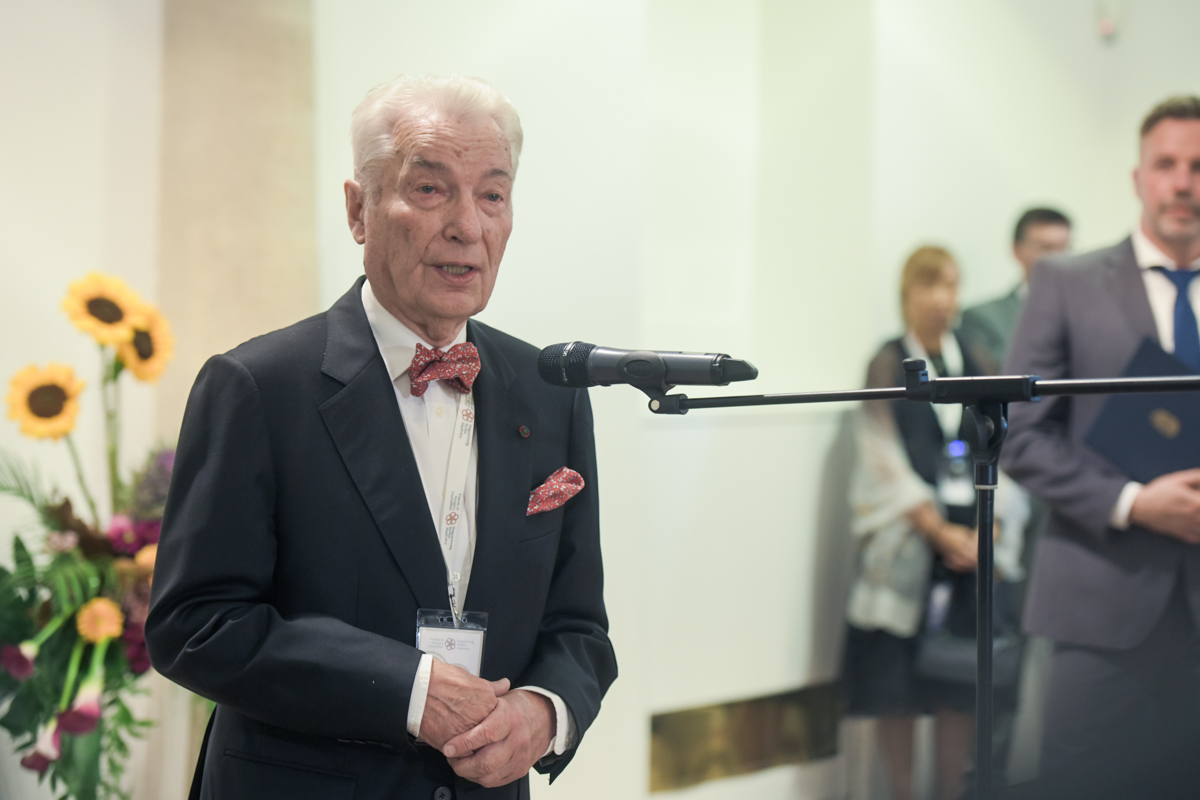
Those committed with a desire and the ability to do something for Hungary met at the VII annual conference of the Friends of Hungary Foundation, which is celebrating its 10th anniversary.Continue reading
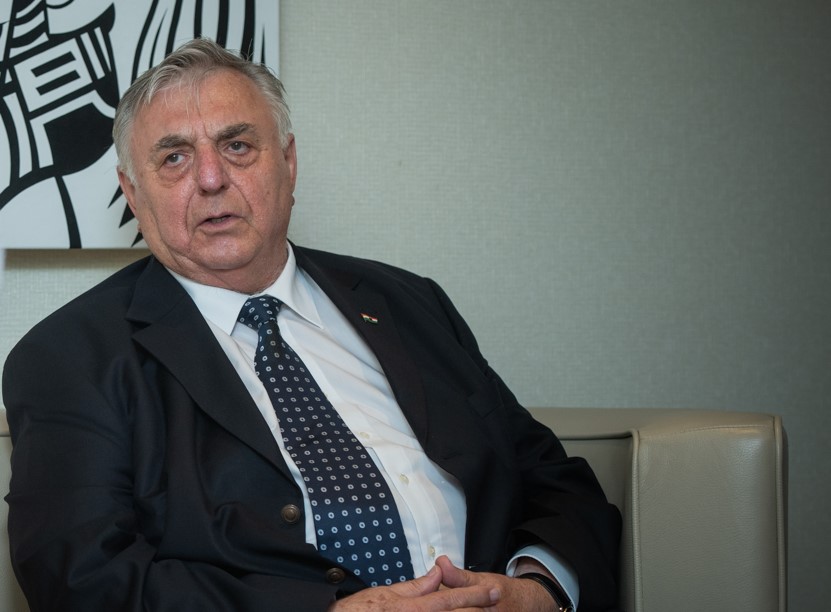
1956. The father of a family unexpectedly returns to his children and wife after 4 years, having fled from Hungary to Austria in 1952. He escaped the Soviet retribution, for years he could not even give a sign of himself. A few days later, however, he had to flee again, this time with his family. One of his three children, András Smuk, was 9 years old at the time. Perhaps this family fate strengthened him to stand up for Hungarians, although he has lived abroad since his childhood. First, he was a member, later president of Club Europe (or Europa Club) in Vienna, which is 57 years old this year. He has received numerous awards for preserving Hungarian culture, history, and values. This year he was extended the “Friend of Hungary” award. Interview.
This interview was originally posted on our sister site, Ungarn Heute.
We celebrate the birthday of Club Europe. The history of the club emerges from various destinies, including yours. I would like to go back in time to 1956 when your father unexpectedly appeared at home 4 years after leaving Hungary in 1952. How did that feel?
Yes, my father left the country in 1952 because our family was going to be deported and he couldn’t bear it. He knew where one could cross the border, where there could be mines: He also got through unharmed, but since Burgenland was Soviet-occupied territory at the time, he was shot at. In the cornfield, he managed to escape. In the evening he went to the nearby Mosontarcsa (Andau) to an acquainted family, they helped him on. In a wagon, hidden among corn stalks, he was transported to the English occupation zone. He arrived in Graz, but from there he was sent to a village in Upper Styria, where he worked in an inn until ’56. Until then we did not know where he was, what had happened to him, whether he was still alive at all. In the meantime, our house was regularly surrounded by ÁVOs (Államvédelmi Hatóság, State Protection Authority in English, was the political police in Hungary formed on the model of the Soviet NKGB between 1948 and 1956). They also came at 2 a.m. to look for my father. We children watched with our mouths open, wondering what they were doing here. These were very unpleasant moments… Then in ’56 my father suddenly appeared.
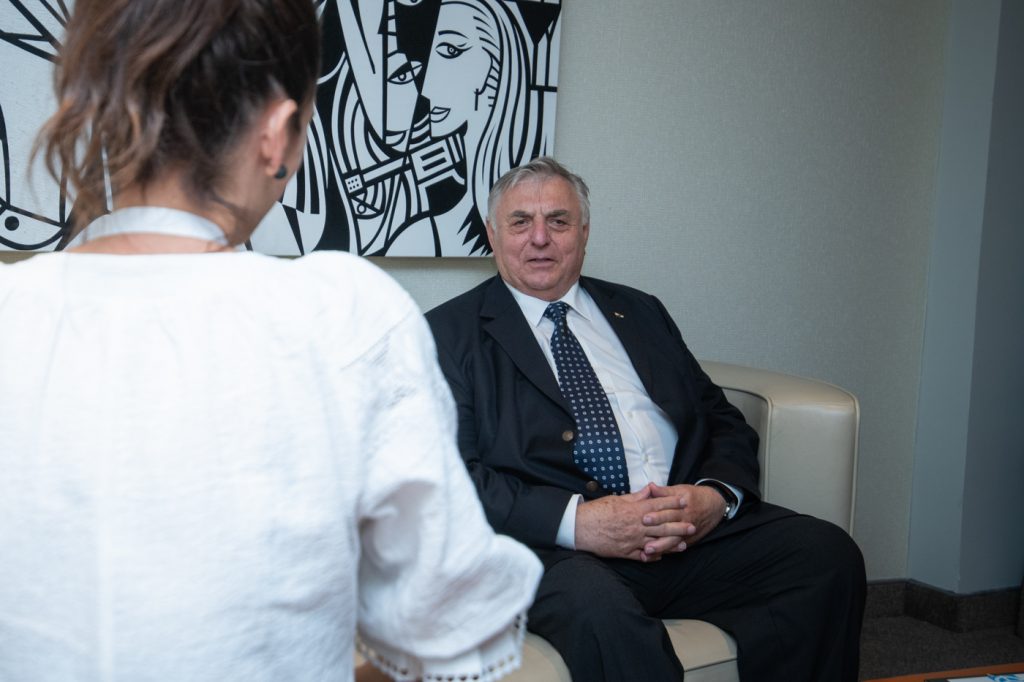
Are we already chronologically after the outbreak of the revolution?
Yes, he had heard about the revolution in the press, which is why he came home feeling like royalty: “I am home now and I will stay home”. He no longer expected to have to flee again. This time we did not walk, in the car were the three children and my parents. My grandmother did not dare to come with us, she stayed at home. However, our dog ran alongside us. When I was sitting in the car, I suddenly noticed that the people fleeing on foot were throwing some red notebooks and papers on the roadside next to us. These red books were their party books. Later I read and found out that the first dissidents were members of the ÁVO. In Austria we first stayed with acquaintances, then in a barracks, then in Styria and Vienna. First I went to the Innsbruck Hungarian High School, which unfortunately closed. From there I went to Burg Kastl in Germany. In Vienna, I studied geology at the university, and then I was involved in oil and gas drilling with the Shell/Mobil company. I did that until I retired. In addition, later on, there was club life. A thought of Emperor Franz Joseph’s brother, Miksa, influenced me when he wrote that human life consists of three phases: youth, the time of love, marriage, nest-building; after that comes the extended family, i.e. the nation, which one should serve, which one should take care of, and at the end the retrospective. The second phase had a particular impact on me.
I realized that one must take care of this extended family, that is, the nation, its language, and its culture, that I must take care of it.
And here we are at the foundation of Club Europe. The organization was founded by young people who emigrated from Hungary after the 1956 revolution. It has been transformed several times since 1964 and was initially a meeting place for young Hungarians. Why did the life of the club change constantly?
The young people abroad were understandably looking for each other. They wanted to celebrate together, have fun, dance. Only later did they realize that community must also be taken care of.
In the first place, young workers came together. Later, students and intellectuals also joined them, then the association became a real cultural institution.
You said earlier in an interview that “rootlessness” and “disorientation” were characteristic of these young people who emigrated to Vienna. What exactly did you mean by that?
The young people fled from Hungary, for them, there was no longer a “home” there, but here in Austria, they were not yet a home either. “Where am I?” “Where do I belong?” “Where are my roots?” These were the kinds of questions they asked themselves. They had to search and research until they found the answers. It was not easy at all to recognize their own identity. About 16,000 people stayed here in Austria, tens of thousands more went to other countries, further west. Among the club members, by the way, some came back home after the regime change. If you look at who bought houses in the area around Lake Balaton, you will see that among them are many Hungarians from Western Europe.
How did politics shape the life of the association? To what extent did the socialist power in Hungary try to reach out to those who were “dissidents” before the regime change?
Until the change of regime, politics influenced us a lot: we rejected communism, we could not accept it in any way.
Wherever we could, we protested against any communist element. After the regime change, we decided to stay away from party politics. Instead, we took stronger steps on the cultural path. This did not mean that we had no political perception, but we wanted to function free from parties.
We still believe in that today. However, I don’t deny that for me the conservative parties are more important than the left-wing ones.
You have often mentioned that culture has played a very important role in your life, which is usually typical of Hungarian communities living in the diaspora. What does it look like for an association in Austria? Is the power of culture to preserve Hungarians easier here than, say, overseas? Especially since the regime change, barely an hour away from the Hungarian border.
Before the change of regime, we had contact mainly with Hungarian communities from Western Europe, associations from Zurich, Lugano, Munich, etc. These relations broke after 1989 because everyone preferred to orient themselves towards Hungary. We were able to replace them with our tours through the Carpathian Basin: we traveled through Upper Hungary, Subcarpathia, all of Transylvania. We visited the Hungarian association on the Dalmatian coast, in Split and in Poland. The most interesting experience we had was in Sicily. I would not have thought that the people living there have such strong emotions towards Hungary. This can be traced back to Garibaldi and the role of the Hungarian soldiers who conquered Sicily with him. For example, there is Lajos Tüköry who has his own statue in Palermo, a street is named after him, there is a sign on the barracks where the soldiers lived, and he was buried in the local cathedral. One of the most touching stories is about a Sicilian soldier who was wounded in battle, learned Hungarian, and translated Petőfi’s poems.
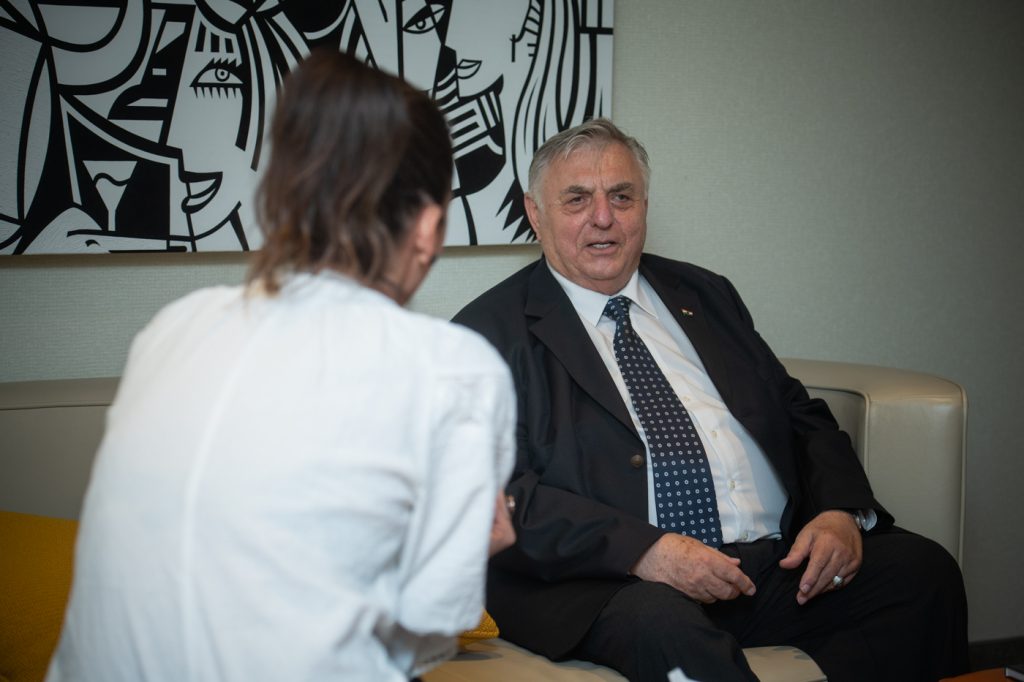
Were there any other great discoveries in the life of the association that, in relation to Hungarians in the world, caught your attention?
Our tour of Israel, where we met with Israeli Hungarians, still had a great impact on us. Nearly half a million Hungarians live there, moreover with the same cultural life as ours: They sing Hungarian songs, organize Hungarian evenings, and have fun.
In the introduction of the club, you repeatedly emphasize that you want to preserve and pass on the spirit of ’56. What exactly does that mean in the 21st century?
Every year for 60 years we celebrate October 23, the anniversary of the outbreak of the revolution. We lay wreaths, we participate in the commemoration of Mosonmagyaróvár, where they shot between the peaceful demonstrators during the revolution. Hundreds died then. Among them was a distant relative of mine, a 16-year-old young man. We used to go to Jánossomorja, my native village, where we erected a “kopjafa” (a traditional carved wooden memorial column) next to Refugee Road 56. We also visit Németóvár (Bad-Deutsch-Altenburg), not far from here. There the Hungarians who fled in 1956 were buried and a common grave was created, from which we created the “symbolic grave of the Austrian Hungarians”. Therefore, here in this place, because St. Stephen founded the local church. In the course of time, even under communism, the burials were stopped and the graves were maintained by the local Austrians. We thought that this was our duty so we took it over. Since then we have also erected a statue of St. Stephen. So we already have two reasons to visit this place.
You have received numerous awards for your work for Hungarians living in the diaspora. Among them is the Officer’s Cross of the Hungarian Order of Merit from our President. This year you can receive the “Friend of Hungary” award. It can be said that the work of our foundation is the inverse of your work. While you unite Hungarians beyond the borders, from our homeland we try to unite Hungarians living in the diaspora. How does the prize fit in between your other awards?
We received the award “Hungarian Heritage”, which meant a lot to us. As an appreciation it was written: “The loyalty of Club Europe to the spirit of 1956 is Hungarian heritage”. This did us a lot of good. In the meantime, I have also received the Officer’s Cross of the Hungarian Order of Merit. That I also receive the “Friend of Hungary” award is very significant and important.
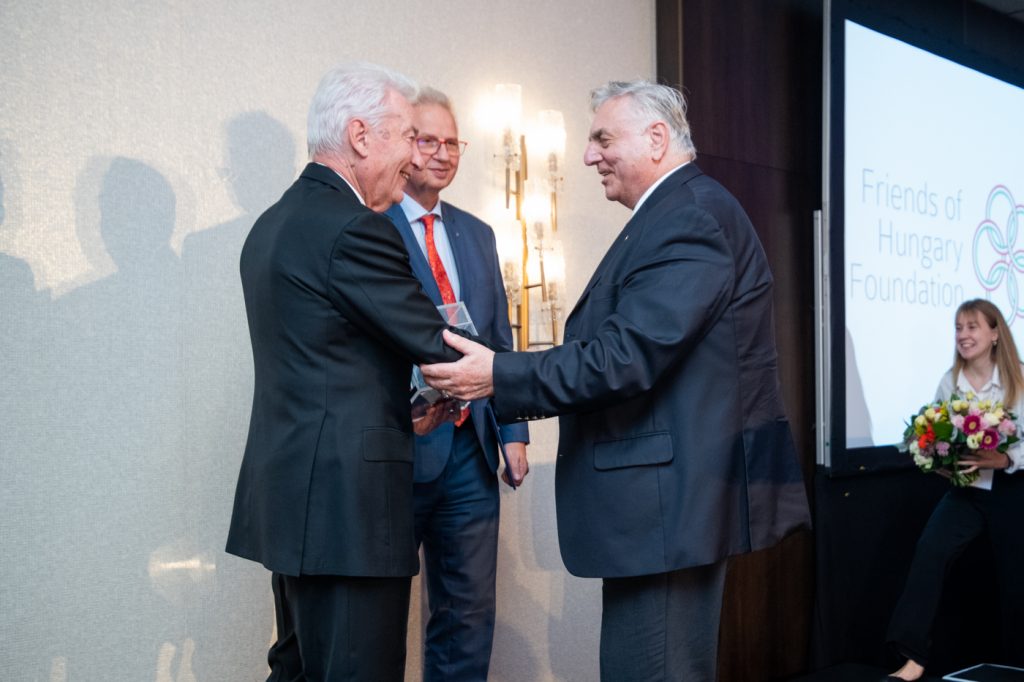
E. Sylvester Vizi (Chair of the Friends of Hungary Foundation’s Board of Trustees), Fidesz MEP László Trócsányi, and András Smuk.
This year our organization, of which you are also a member, turns 10 years old. In your opinion, how can such an association contribute to the preservation of Hungarians in the world?
If you can pass on the identity, Hungarian values, Hungarian history, and culture with your work, then the work is already worthwhile.
With the Hungarian language, you can establish relationships. This is the essential factor on which we also place great emphasis. Hungarian schools on the other side of the border are functioning, and folk dance clubs are also active. Of course, this is a way to reach out to young people in particular.
Are there enough new members?
There are, but it is not easy. Unfortunately, my experience is that most young people are not interested in the national consciousness, they have no interest in the community. In many, the selfish, self-fulfilling, self-serving line is strong. It is difficult to address them with the concept of national consciousness. But this is not limited to one location, I hear the same thing from many places.
Let’s go back to 1956. You mentioned that your grandmother stayed here when your family left the country. When did you meet again for the first time?
Only after the change of regime. Our house was converted into a teacher’s house, my grandmother got her own part to live in, that’s where she lived. Later we also brought her to Vienna, but she didn’t want to stay here, she really wanted to go home again. She missed home. At that age, this change would have been very difficult. She died at home, and to this day we take care of the grave and continue to come back to my birth village.
And the dog?
Our dog, which ran alongside our car for a while, was chased back by my father. He ran home, despite the distance being more than 10km. He stayed there with my grandmother.
Photos by Tamás Lénárd/Hungary Today